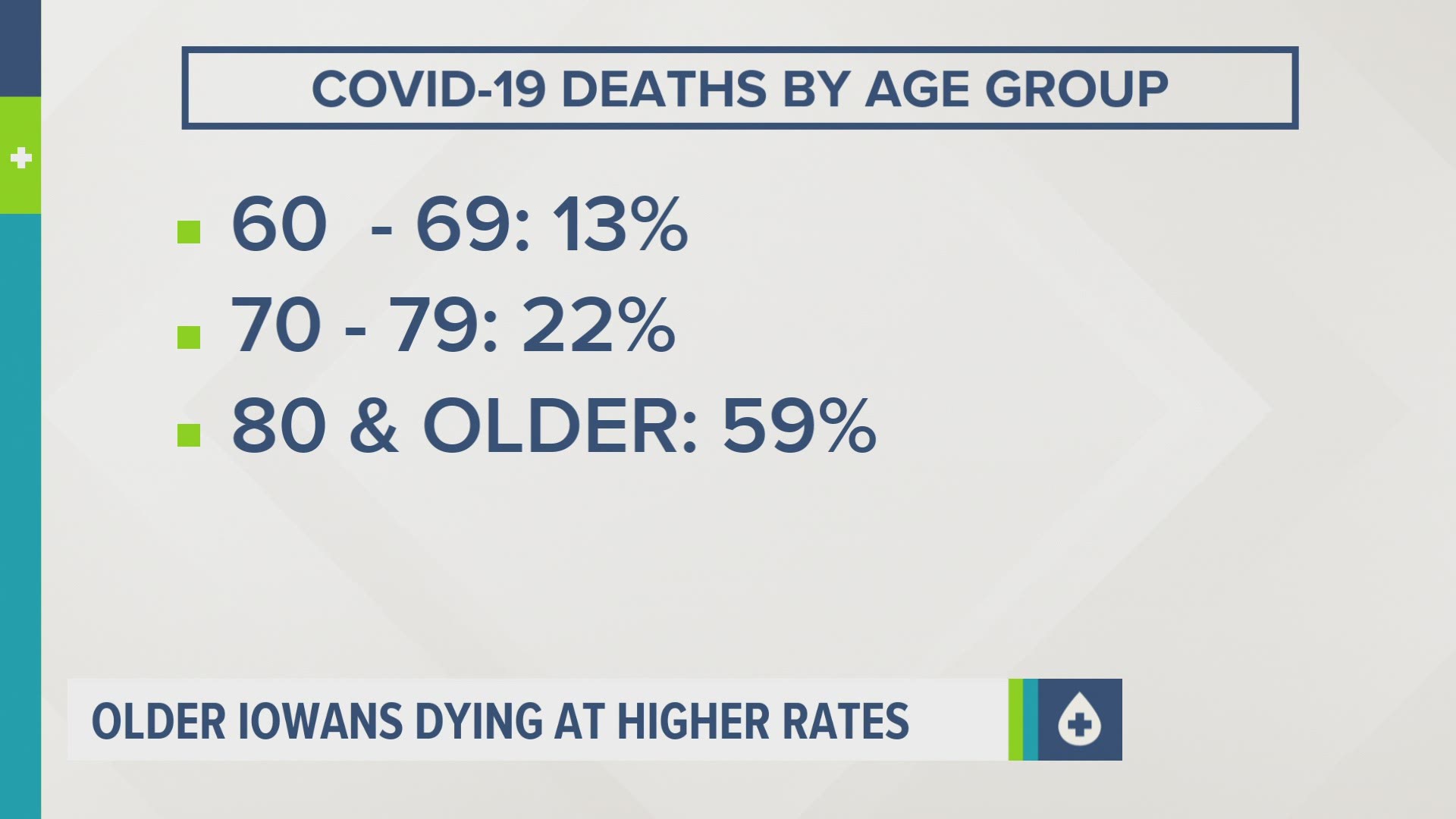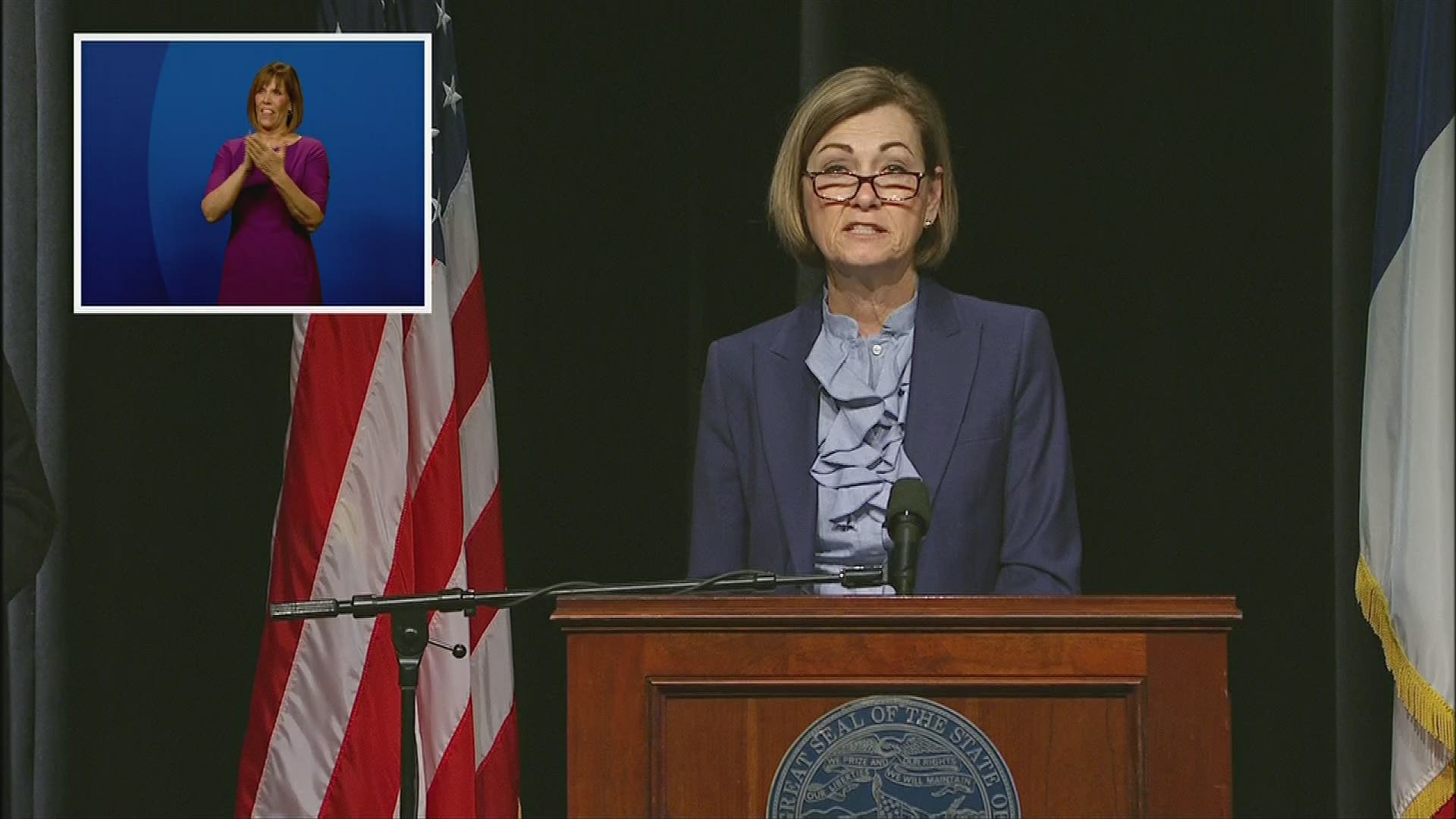JOHNSTON, Iowa — Gov. Kim Reynolds said Wednesday she believes Iowans will "do the right thing" when it comes to getting the COVID-19 vaccine, but does not support the idea of vaccine passports.
"While I believe in the efficacy of the vaccine, enough to get it myself and encourage Iowans to do the same, I also respect that it's a personal choice," she said. "But I strongly oppose vaccine passports and I believe that we must take a stand as a state against them, which I intend to do either through legislation or executive action."
When asked how she defines vaccine passports and what issues she wants to address, Reynolds said questions have been raised about privacy implications.
"I think there's all kinds of questions that are really raised with moving in that direction. Privacy implications, HIPAA, First and Fourth Amendment rights, Americans with Disability," the governor added. "I think when you're, what you're doing when you move forward with something like that as you're creating a two-tiered society and it's been either engaged or you're marginalized."
Reynolds also raised concerns over what is being done with the data on vaccine passports, calling it "more big government overseeing."
At this point and time, there are not any universal vaccine passports. However, airlines and others in the travel industry are supportive of the idea to boost travel.
Besides Reynolds, several other Republican governors have spoken out against vaccine passports.
Vaccine passports do not violate the Health Insurance Portability and Accountability Act (HIPAA).
The purpose of HIPAA is to protect sensitive medical information. It applies when a health care provider or insurer receives a patient's protected health information.
While a vaccine card is considered protected health information, an airline isn't a health care provider. Providing an airline with a vaccine card shouldn't reveal any other information about a person.
"Vaccine status doesn't reveal other information about you, so it doesn't say anything sensitive about your pregnancy or your mental health status or whether you have HIV/AIDS," said Erin Fuse Brown, the Catherine C. Henson Professor of Law at Georgia State University.
Reynolds expects some form of legislation from Iowa lawmakers to come to her desk on the issue, but brought up the possibility of an executive order if nothing else.
Latest vaccine data
The governor said more than 1.7 million doses have been administered in the state, which is 83% of all doses that have been delivered to the state.
Iowa is ranked 10th in the nation for vaccine administration.
Reynolds also reported the following data:
- 44% of Iowans 18+ have received at least one dose
- 87% of Iowans 65+ have received at least one dose
- 28% of Iowans are fully vaccinated, ranking Iowa 9th in the nation for fully vaccinated people
Reduction in Johnson & Johnson vaccine allocation
Reynolds confirmed Iowa's Johnson & Johnson allocation will be less than expected for the next few weeks.
"The White House COVID response team did inform governors yesterday, that we are going to see a significant reduction in J&J doses next week and that we should expect lower allocations until the end of the month," the governor said.
Local 5 has confirmed a message was sent Tuesday night through the Health Alert Network to two separate county health departments regarding the projected allotments.
The Iowa Department of Public Health wrote it was projected to receive an allocation of 17,300 doses of the J&J vaccine this week. On Tuesday, the state was told the allocation for this week would be only 5,400 doses of Janssen.
"We are disappointed in this news, and projections for next week appear to be even lower," IDPH wrote. "Unfortunately, this means most counties will not receive a Janssen allocation this week, and it is unlikely to change for next week."
The doses sent to the state this week will be given to select counties, according to the IDPH message. The list of counties was not provided.
In Monroe County, the public health department said it wouldn't be able to hold Johnson & Johnson clinics in the next two weeks.
Reynolds announced the single-shot doses will be prioritized for college students to make sure they are vaccinated before heading home for the summer.
Recent uptick attributed to those 18-24 years old
Reynolds addressed virus activity is increasing, again.
"Much of the recent uptick in positivity cases, not only in Iowa but we're seeing this nationwide, can be attributed to individuals [who] are 18 to 24 years of age," she said. "While many of them will experience only mild symptoms, they risk spreading it to others, including older coworkers, family members or their parents who could become seriously ill."
Reynolds said the highest percentage of current COVID hospitalizations is among adults aged 40 to 60 years old.
"61% of all Iowans currently in a hospital for COVID treatment fall into those age groups," Reynolds said.
The Associated Press contributed to this report


